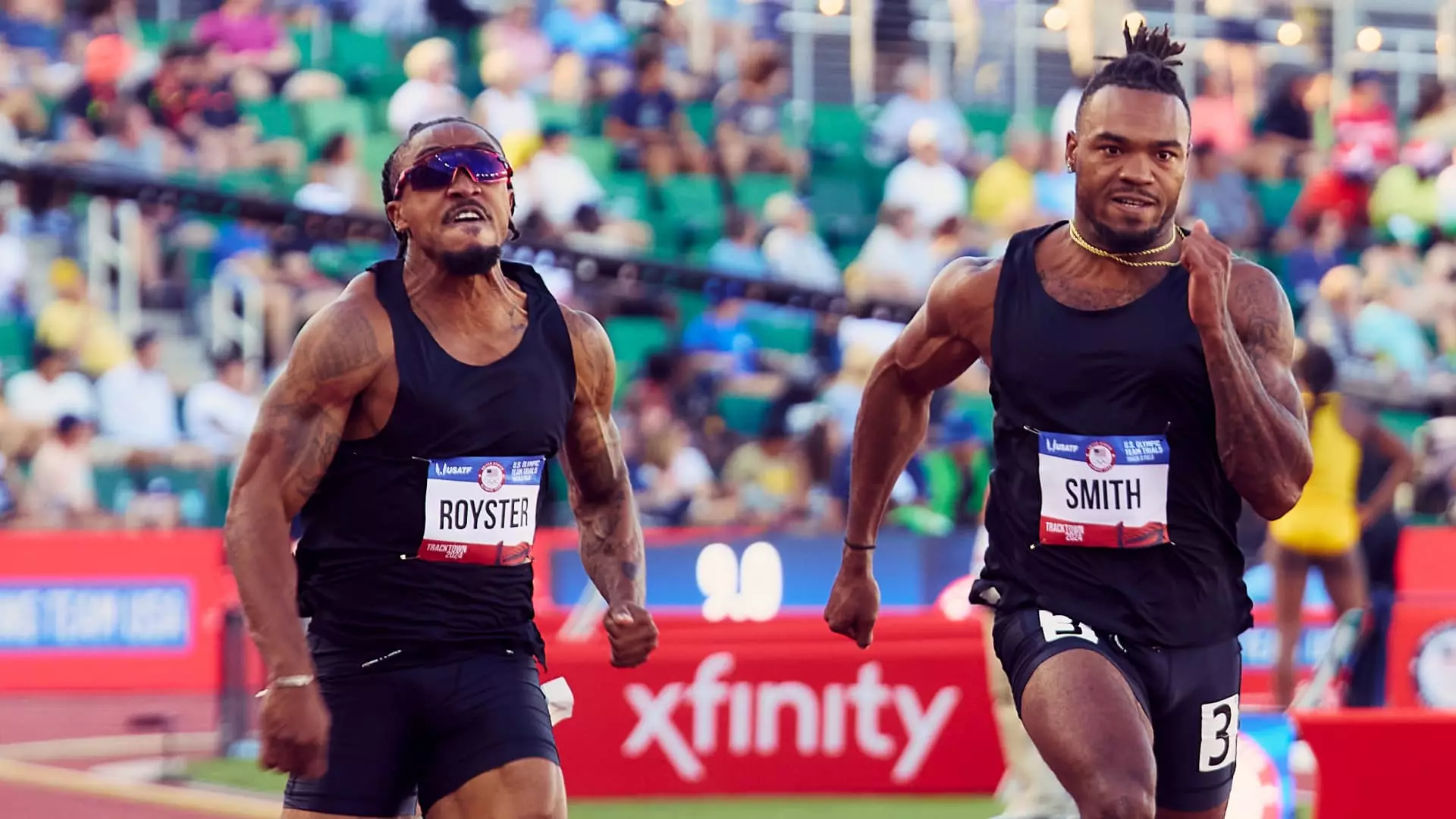At the U.S. Track & Field Olympic Trials this year, a unique phenomenon is taking place. A group of 35 unsponsored athletes is making waves by wearing all-black, logo-less gear provided by Bandit Running’s Unsponsored Project. This initiative aims to challenge the traditional sponsorship model for professional athletes and provide support to up-and-coming competitors in the field of track and field.
Typically, unsponsored athletes in track and field would have to purchase their own apparel from major brands, effectively turning themselves into walking billboards for these companies. However, Bandit Running offers these athletes an alternative. They provide them with all-black kits, warmups, and short-term endorsement deals during the trials. This new sponsorship model not only offers apparel but also a platform and financial support to cover expenses.
Bandit co-founder Tim West explained that the company is giving out at least 35 two-week deals to unsponsored runners at the trials. This provides these athletes with a new opportunity to showcase their talent and potentially secure a more permanent sponsorship deal in the future. The goal is to encourage brands to redirect part of their budget towards supporting amateur and sub-elite athletes to help grow the sport as a whole.
Empowering Athletes
The Unsponsored Project has a built-in release clause that allows athletes to easily transition to traditional sponsorship deals if offered during the trials. This flexibility gives these athletes the freedom to explore different opportunities while still pursuing their Olympic dreams. For athletes like Courtney Okolo, a 400-meter runner and former Nike-sponsored athlete, the Unsponsored Project has provided a sense of support and camaraderie in a competitive field.
Okolo highlighted the financial challenges that many unsponsored athletes face, particularly when it comes to covering the costs of training, travel, and competition. Bandit’s initiative not only helps alleviate some of these financial burdens but also raises awareness about the struggles that athletes face without traditional sponsorships. By wearing logo-free kits, these athletes stand out as potential candidates for long-term partnerships.
Brandee Johnson, a 26-year-old unsponsored track athlete who qualified for the Olympic trials, shared her story of working multiple jobs while pursuing her Olympic dreams. Johnson’s involvement in the Unsponsored Project has provided her with the support and encouragement needed to continue her training and compete at a high level. This alternative avenue to sponsorship not only helps athletes like Johnson achieve their goals but also contributes to making a positive impact in the lives of athletes within the track and field community.
The Unsponsored Project by Bandit Running is redefining the sponsorship landscape in track and field. By providing unsponsored athletes with a platform, apparel, and financial support, this initiative is empowering athletes to pursue their Olympic dreams without the constraints of traditional sponsorships. It is opening up new opportunities for aspiring athletes to showcase their talent and make a mark in the competitive world of track and field.



Leave a Reply